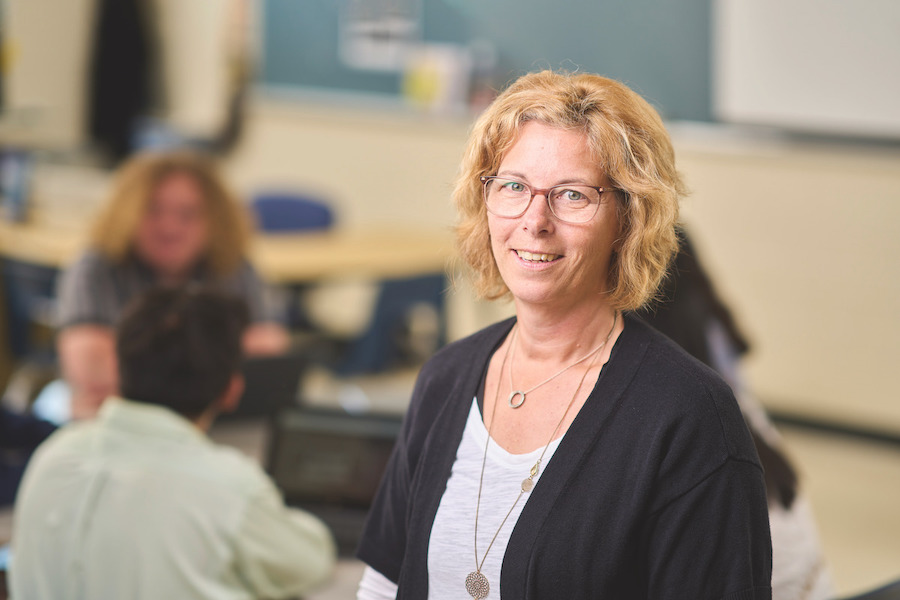Stacie Olivier wants to change the way we educate students. Although she has been a teacher for nearly 24 years, it was only in February 2021 that Oliver embraced “ungrading,” an approach that prioritizes feedback over scores. At A.B. Lucas Secondary School in London, Ont., Oliver’s English students choose their own grades; in return, the teacher has them prove through their work that those marks are deserved. Three years later, Oliver has seen how much the practice has helped her students rediscover their love of learning.
System
School is transactional, and grades are the currency. You need to have the grades to get to the next level, and because there are just a few spots, there’s a competition factor. That’s how our society works, and so that’s how our education system works too. If you get an A on a test, what does that tell you? It doesn’t tell you what you’ve learned, how you’ve learned it or how to improve. Learning should be joyful. When it isn’t, there’s a lot of stress, anxiety and mental health issues that can stem from the pressure. It’s problematic.
More on Broadview
- More young girls are fearing for their safety as they engage in activism
- These United Church members showed up to say no to anti-LGBTQ2S+ protests
- Education changed my life when I was in jail
Trends
The pressure that is on young people today is not sustainable. Research shows that when we focus only on grades, there’s less learning. But when we focus on feedback, there’s a 30 percent improvement in learning. Another 2010 survey interviewed 2,500 CEOs to find out the most important qualities of a leader. Things like risk taking, innovating and problem solving were among them. In order for students to acquire those soft skills — to really learn — they have to be willing to take risks. But they can’t do that if learning is transactional. There needs to be space to try, fail and improve.
Basis
I’ve been a feedback-focused teacher for a long time, so it’s not a huge stretch for my classes to not be getting any grades at all. The purpose of ungrading is to build joy and confidence and boost growth, risk-taking and collaboration. The students believe in themselves and their ability to improve because they can actually see that they are learning and take pride in it. By putting the learning back in their hands, they have autonomy. We become co-creators and it levels the playing field.
Process
My students’ jobs are to become better readers, writers, communicators and learners. They get opportunities to apply those skills in their projects, so they end up building a body of evidence that can demonstrate how they have improved along the way. I think it’s important to ask ourselves about the purpose of schooling. Is it about job readiness? Developing skills? For me, it’s always been about more than that. It’s about how we can help students to become better people.
***
Meredith Poirier is an intern at Broadview.
















Might not work so well if she was teaching something like Engineering. If you want buildings and bridges that don’t fall down you need to test and not pass a student just because you don’t want to hurt their feelings.